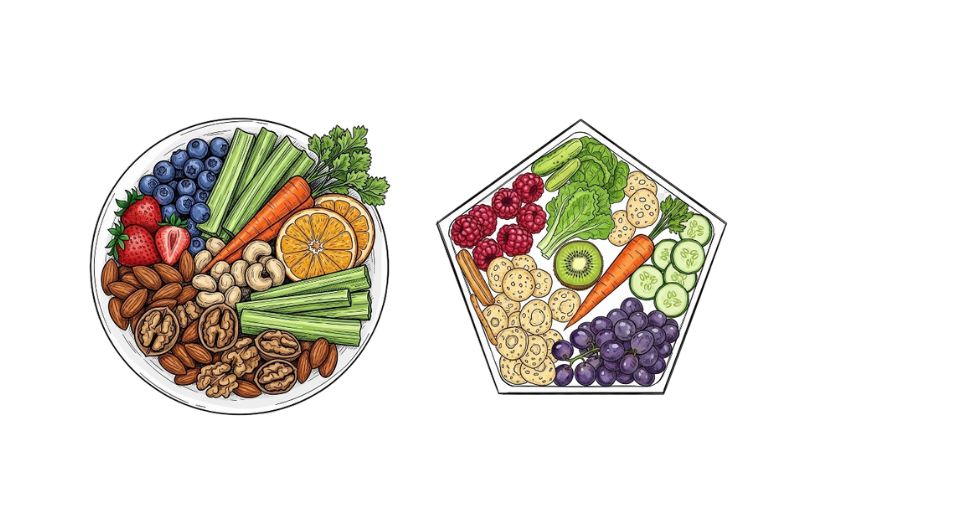MARKET OVERVIEW
The UK Canned Fruits market is a very strong section of the food industry in the country, since it involves diversified and dynamic areas of products. This market incorporates all types of fruits—from peaches, pineapples, and fruit cocktails to more exotic fruit varieties. With taste and preferences changing swiftly, so is the UK Canned Fruits market to keep up with convenience, quality, and variety expectations.
Canned fruits are popular in the UK because of the ease of use of the product, long shelf life, and high nutritional value. The products are usually canned at the state of being fully ripe; hence, most vitamins and minerals have been attained. They represent a great option to any customer looking to eat healthily while reducing food wastage. The canning process itself—involving the sealing of fruits in tight containers and subsequent heating for the kill of microorganisms—makes these products safe and ready to eat with very minimal preparation. The UK Canned Fruits market has also had an important part to play in underpinning the agricultural sector. Most of the fruits used for canning come from home and overseas growers, offering farmers a very reliable outlet to sell their produce. This relationship between growers and manufacturers underpins prices and reduces the risk of oversupply shock to the benefit of all those involved in the supply chain.
UK retailers have responded to this demand with a variety of canned fruits, spanning from the very basic to the most elite and unique of them all—premium organic fruit blends. Selling at supermarkets and online grocery platforms are various brands and sizes of packaging, while private label brands appeal to consumers just as much by being cost-effective without sacrificing quality.
Sustainability has come more and more into the forefront of the UK Canned Fruits market. Companies are aggressively pursuing eco-friendly packaging solutions and green sourcing practices that will appeal to the green consumer. Metal cans are used to a great extent for packaging and are fully recyclable, hence greatly preferred from the perspective of low environmental impact. Furthermore, almost all manufacturers are found today involved in reducing their carbon footprint through their optimized production processes and supply chains.
Other factors are the changing dietary trends and health-conscious behavior. With growing awareness about having a diet rich in fruits, it has positioned the canned fruit as a convenient way of fulfilling the recommended daily fruit intake. Most marketing strategies focus on its nutritional advantages by stressing the important role that canned fruits can play in supporting a healthy lifestyle.
In the future, it is envisaged that the UK Canned Fruits market will introduce more variety of products in terms of range and also come up with innovative ways of packaging. With improvements in food technology, new methods of preservation that retain the flavor and texture may make canned fruits more palatable. On the other hand, demand for organic and additive-free products may become rampant as people grow more conscious about the food they eat.
The UK Canned Fruits market has been part of the food industry since time immemorial and represents a balance between consumers' needs for convenience and nutrition and sustainability and quality.
This market will further evolve as trends continue shifting and new opportunities present themselves, ensuring that canned fruits are always a staple in British households. The interaction between consumer demand, agricultural practices, and innovations in technology will hence drive the future of the UK Canned Fruits market, remaining of relevance and significance.
The UK Canned Fruits market is estimated to reach $483.3 Million by 2031; growing at a CAGR of 2.1% from 2024 to 2031.

GROWTH FACTORS
The growth of the UK canned fruits market is strong, backed by various factors. In addition, changing consumer lifestyles and preferences have raised demand for convenient and long-lasting food products. Canned fruits are convenient in the sense that they are ready to eat and have a longer shelf life than fresh fruits. Consumers are thus reaching out to such products that offer them convenience without necessarily having to forgo the nutrition element.
The growing awareness regarding ways of reducing food wastage is also propelling this market. Since canned fruits are long shelf-life products, they go on having reduced spoilage and wastage; hence, environmentally conscious consumers keep finding favor in them.
However, several factors can restrain the growth of the market. First of all, increasing health awareness among consumers is a big challenge to canned fruit with sugar or preservatives added. Secondly, the fluctuating prices of the raw materials and environmental pressure due to the packaging material used in making cans may hamper its growth rate.
Looking ahead, the market is likely to benefit from technology and related innovations in packaging. Improved can designs that would enhance the freshness of the product and maintain nutritional value will respond to evolving consumer preferences. Increasing online grocery shopping and development of e-commerce platforms will increase the reach of the market by enabling manufacturers to reach more consumers.
The UK canned fruits market is likely to increase owing to consumer demand for convenience and sustainability concerns that are placed on the manufacturers, coupled with innovation in packaging. While nutritional and environmental issues always pose a challenge, ongoing innovations in this area will always shape the market landscape positively. The supply chain—from manufacturers to retailers—ought to adapt strategies that provide a coherent response to the changing consumer preference and developing regulatory environment of the market.
MARKET SEGMENTATION
By Nature
Canned fruits are important in today's food market due to the easy and durable options they offer consumers. The products are packed in a sealed nature, hence preserving freshness and the initial nutritional value for a longer time. On the basis of nature, the UK canned fruits market has been segmented into organic and conventional, reflecting changing consumer preference towards healthier and sustainable food choices.
Organic canned fruits are produced without artificial chemicals and pesticides. The demand for this product is growing with the natural and eco-friendly trends. This organic segment appeals to those consumers who look towards their health benefits and sustainability in their food. With organic, the consumer will be able to savor the flavors of fruits with their nutrients, without harmful substances.
Conventional canned fruits, on the other hand, are processed according to the standard agricultural practices, which may include synthetic chemicals in pest control and fertilization. Available everywhere and usually at a lower price, the products appeal to many consumers due to the consistency in quality and lower prices compared to organic produce.
Besides consumer preferences, the quality and charm of canned fruits will be more likely further improved by technological advances in processing and packaging food items. Better packaging material will ensure freshness and a longer shelf life while reducing the impact on the environment. Improved preservation techniques will also play their role in retaining nutrition and flavor, which consumers who are quite conscious of what they eat will appreciate.
The total UK canned fruits market comprises the organic and conventional sectors, driven by changing consumer tastes and raising awareness of both health and sustainability issues. As more consumers are looking to prioritize convenience without compromise on quality, canned fruits will maintain their place as a staple in kitchens across the country.

By Distribution Channel
The United Kingdom market for canned fruits is currently segmented by distribution into online and offline channels. Online sales grew considerably in recent times due to the increasing reach of e-commerce portals and convenience in using them. Offline channels, however, that include supermarkets, grocery shops, and convenience stores form a strong part of the market due to easy access and product availability at the doorstep.
With the passing of time, probably in the next few years, the distribution landscape of canned fruits in the UK will further change. Online channels will continue to grow with increased adoption of the digital consumption experience among consumers. This will be enabled by technological and logistical improvements that make it ever easier for consumers to buy a can of fruit with just a few clicks. Moreover, there is always more variety and competitive prices available on online platforms, making a plausible case for very many consumers. In turn, offline channels will continue to adapt when consumer preferences and behaviors evolve. But despite remaining a convenient point of purchase for many consumers, physical stores may shift their emphasis onto improving in-store experiences and on product assortment optimization through advanced product visibility with attractive displays or any other customized customer service in order to differentiate those sold offline from those sold online.
Basically, it will be this synergy of online and offline distribution channels that will determine the future course of the UK canned fruits market. Both stand as crucial channels to reach and serve consumers—both offering rather quite different advantages and experiences. The ability to use the strengths of both online and offline channels will hold the key to success for businesses in this market. This may be in the form of integrating digital strategies with traditional retail practices to create a smooth and engaging shopping journey for consumers.
By Product
Canned fruits are further sub-divided into a number of product categories, including canned peaches, mixed fruits, pineapples, citrus fruits, and pears. All these segments reflect the different consumer preferences and tastes within this particular market of canned fruits.
Canned fruits have several benefits to the consumer. They are convenient in the sense that they are ready to eat and last longer than fresh fruits. Therefore, this will be much easier for individuals or those who want to store them for a longer period. Advanced preservation techniques make canned fruits preserve well, and most vitamins and minerals are still received by consumers.
The UK market is dynamic for canned fruits, with trends indicating stable demand across all segments. Canned peaches are preferred by those who like them sweet and can be used for desserts or just as a snack. The canned mixed fruits find a place in the hearts of people who want variety and flavor together in a single pack. Canned pineapples are liked for their tropical taste, being used both in sweet and salty dishes.
Canned citrus fruits add a sour taste to food and drinks. Canned pears are also characterized by their softness and natural sweetness, and thus maybe used in baking and cooking or just straight from the can. Other products of canned fruit meet special tastes and offer variations from that which would be more mainstream.
The technological advances being made in food processing will further raise the bar on the quality and range of canned fruits available in the UK market. It will bring additional benefits of extended shelf life through improved packaging and preservation methods, while maintaining freshness and nutrients in the products. The constantly advancing food technology will help address the changing tastes and nutritional needs of consumers.
Another major driving factor for the canned fruit market is the increasing consumer awareness of health and nutrition. As more consumers reach out for healthy snacks and ingredients for home cooking, demand is only going to increase for high-quality canned fruits. In this regard, manufacturers are hence coming up with low-sugar, preservative-free products full of natural goodness.
Products available in the UK canned fruit market have diversified, offering varieties that can suit different tastes and lifestyles. There are opportunities for growth through continuous food technology innovation and increasing consumer awareness since fruits remain convenient and healthy for consumers everywhere in the country.
COMPETITIVE PLAYERS
There are a number of firms that compete in the UK canned fruits market. These organizations have key functions in providing consumers with different types of preserved fruits, thus meeting diverse tastes and preferences of customers.
Other well-known competitors on the list include Del Monte Foods, Inc., Princes Foods, Libby's, Tesco Plc, Wm Morrison Supermarkets Limited, ASDA Stores Limited, J Sainsbury Plc, Marks and Spencer Plc, Waitrose & Partners, LIDL US, LLC, ALDI, Dole Packaged Foods, LLC, Kraft Heinz, Golden Circle, Brake Bros Ltd., and Kiril Mischeff Limited.
Each of these companies has different strengths and strategies in terms of approaching the market. For instance, Del Monte Foods Inc. offers an extremely diversified range of canned fruit products for consumers. On the other hand, both Princes Foods and Libby's have equally wide ranges but strive for quality and dependability. Tesco Plc and Wm Morrison Supermarkets Limited, being big retail chains, also have large distribution channels that ensure the wide availability of canned fruits all over the UK.
ASDA Stores Limited, J Sainsbury Plc, Marks and Spencer Plc, and Waitrose & Partners are the companies that cover more discriminative consumer groups, focused on high quality and assortment. LIDL US, LLC, and ALDI give high competitive prices without compromising quality. Dole Packaged Foods, LLC; Kraft Heinz, Golden Circle; Brake Bros Ltd; Kiril Mischeff Limited provide the market with product specialization and brand reputation.
In the future, these players would most likely further innovate and diversify their product lines to keep up with changing consumer preferences and diet trends. The emphasis could then be shifted to reduced sugar or organic canned fruits as health consciousness increases. Besides, initiatives on sustainability can be a game changer in areas such as packaging decisions and sourcing practices.
In this very dynamic market environment, firms will have to retain brand loyalty through effective marketing strategies and responsive customer service. Penetrating into areas like e-commerce and digital marketing shall also become important to reach out to a larger audience and increase engagement with customers.
The UK canned fruits market comprises different competitive players, all fighting to meet consumer demand through innovation, assurance of quality, and strategic market positioning. It is these efforts that shall foster future growth in the sector by meeting the emerging trends and consumer preferences in the coming years.
UK Canned Fruits Market Key Segments:
By Nature
- Organic
- Conventional
By Distribution Channel
- Online
- Offline
By Product
- Canned Peaches
- Canned Mixed Fruits
- Canned Pineapples
- Canned Citrus Fruits
- Canned Pears
- Other Products
Key UK Canned Fruits Industry Players
- Del Monte Foods, Inc
- Princes Foods
- Libby's
- Tesco Plc
- Wm Morrison Supermarkets Limited
- ASDA Stores Limited
- J Sainsbury Plc
- Marks and Spencer Plc
- Waitrose & Partners
- LIDL US, LLC
- ALDI
- Dole Packaged Foods, LLC
- Kraft Heinz (Golden circle)
- Brake Bros Ltd.
- Kiril Mischeff Limited
WHAT REPORT PROVIDES
- Full in-depth analysis of the parent Industry
- Important changes in market and its dynamics
- Segmentation details of the market
- Former, on-going, and projected market analysis in terms of volume and value
- Assessment of niche industry developments
- Market share analysis
- Key strategies of major players
- Emerging segments and regional growth potential








 US: +1 3023308252
US: +1 3023308252






